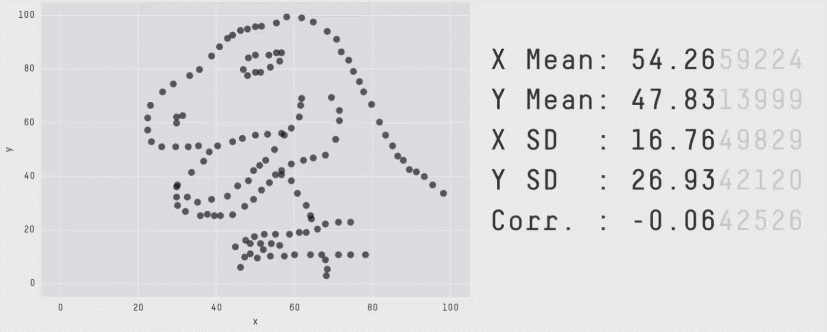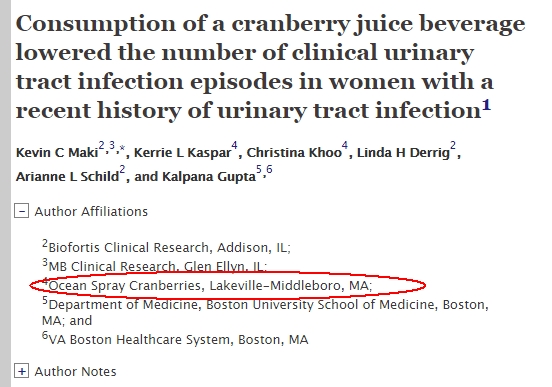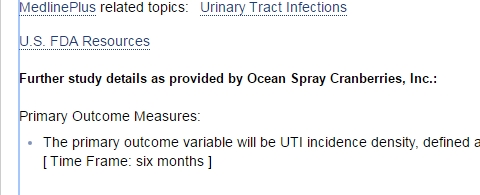Guest post by Jeff Mosenkis of Innovations for Poverty Action. The datasets above all have the same means, SD, and correlations explain Justin Matejka & George Fitzmaurice of Autodesk in a modern update of Anscombe’s Quartet. But the lesson is the same – always plot your stuff. (h/t everybody) Jobs postings: Summer jobs with Busara Center, full-year with Michael Clemens, and many at the IPA/J-PAL (and several other orgs) jobs portal. Podcasts: Tyler Cowen talks with Cardiff Garcia on FT Alphachat about his new book on his philosophy of economics that he put online free, Stubborn Attachments. My takeaways: A world of full-on Peter Singer effective altruists would be a world with no ice cream because every extra dollar above what one absolutely needs should go to alleviating someone else’s
Topics:
Jeff Mosenkis (IPA) considers the following as important: academia, aid, business, conflict, conflicts of interest, development, disaster relief, disasters, environment, health, history, jobs, links, miscellany, news, podcast, podcasts, political science, politics, Research, statistics
This could be interesting, too:
Robert Skidelsky writes Lord Skidelsky to ask His Majesty’s Government what is their policy with regard to the Ukraine war following the new policy of the government of the United States of America.
Joel Eissenberg writes No Invading Allies Act
Ken Melvin writes A Developed Taste
Bill Haskell writes The North American Automobile Industry Waits for Trump and the Gov. to Act
Guest post by Jeff Mosenkis of Innovations for Poverty Action.
- The datasets above all have the same means, SD, and correlations explain Justin Matejka & George Fitzmaurice of Autodesk in a modern update of Anscombe’s Quartet. But the lesson is the same – always plot your stuff. (h/t everybody)
- Jobs postings: Summer jobs with Busara Center, full-year with Michael Clemens, and many at the IPA/J-PAL (and several other orgs) jobs portal.
- Podcasts: Tyler Cowen talks with Cardiff Garcia on FT Alphachat about his new book on his philosophy of economics that he put online free, Stubborn Attachments. My takeaways:
- A world of full-on Peter Singer effective altruists would be a world with no ice cream because every extra dollar above what one absolutely needs should go to alleviating someone else’s suffering. He doesn’t think that’s realistic to push for but does believe in a slightly scaled down version.
- He also thinks people undervalue the usefulness of economic growth for alleviating suffering at large scale. So it may be more advantageous to invest a dollar in economic growth if it can alleviate 3 dollars’ worth of future suffering than in alleviating 1 dollar of suffering now.
- Mainly, it was nice to listen to a conversation that looks at the big picture of how we should be thinking about using the tools of economics. It’s nice to imagine a world where economics draws more on philosophy than math.
- Last week’s The Weeds discussed Dube & Harish’s paper looking at 500 years of wars, showing Queens were more likely to go to war than Kings (article about it from Pacific Standard). (h/t Dina Pomeranz)
- How many people have to die for a disaster to make the news? One if it’s from a volcano, 2 from an earthquake, and 38,920 if from hunger (ungated here). Also, if it happens in an Olympic year, the chances of it making the news and getting disaster aid go down. (via Emily Troutman)
- Using White House visitor logs, Brown & Huang find companies whose executives visited Obama’s White House were more likely to have stock prices go up in the following months (by about 1%), and to experience better regulatory treatment after meeting with federal officials. But those firms also took a bigger hit immediately after the Trump election. (Gated, article about in Bloomberg).
- PubMed is adding in conflict of interest information on studies after abstracts, though research shows sometimes conflict disclosures can backfire for a number of reasons, including the perception of the conflict having been addressed, while the person receiving the information doesn’t sufficiently adjust for it.
- Apparently (at least according to Wikipedia) in the years 1937-1942 there was another organization called IPA. A collaboration of social scientists, historians, educators, and journalists, it was devoted to flagging fake news. (h/t Colin Rust)
I don’t know why people think conflicts of interest are a problem. Ocean Spray was happy to be of assistance co-authoring a paper on the healthy effects of Cranberry Juice (which have been questioned elsewhere), and even helped out with the clinical trials registry (via that Vox article):



